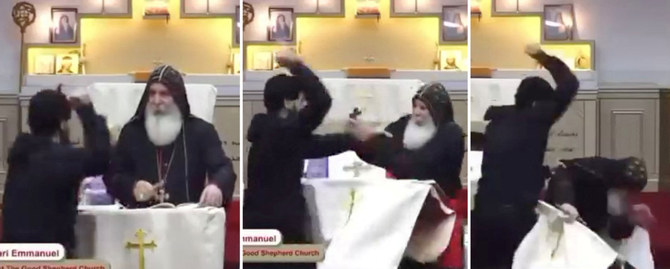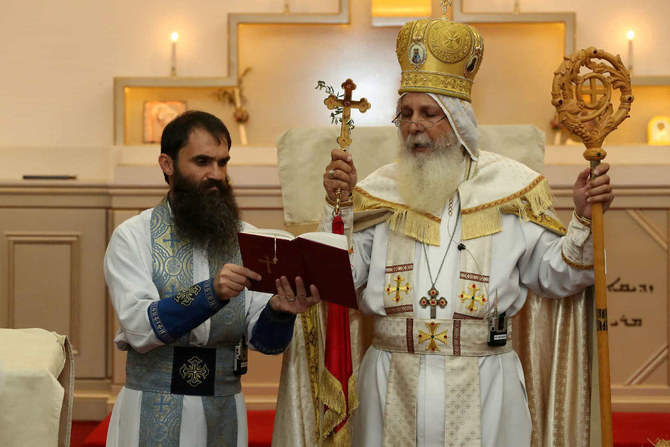SYDNEY, Australia: A 16-year-old boy has been charged with a terrorism offense for allegedly stabbing an Assyrian church bishop in Sydney during a church service, Australian police said on Friday, as investigations continued into a riot after the knife attack.
Police from the joint counter-terrorism team questioned the boy, who is in a hospital under police guard recovering from injuries, on Thursday and charged him with committing a terrorist act. If convicted, he could get a maximum penalty of imprisonment for life.
He has been refused bail and is expected to appear before a bedside court hearing on Friday, New South Wales state Police Commissioner Karen Webb said during a press conference.
Police will allege the bishop was stabbed as many as six times and that the boy had traveled for 90 minutes to reach the church from his home, Webb said.
A riot broke out outside the church soon after the attack on Bishop Mar Mari Emmanuel after an angry crowd demanded the suspected attacker be handed over to them. More than 50 police officers were injured and 20 police cars were damaged.
The 53-year-old bishop has a popular youth following on TikTok and has been a target of criticism, hate and online trolling. His sermons range from homilies on the Bible to fiery criticisms of homosexuality, COVID-19 vaccinations, Islam and the election of US President Joe Biden.
Bishop Emmanuel, in an audio message on social media on Thursday, said he had forgiven his attacker and that he was recovering quickly.
Two knife attacks within three days — at a mall near Bondi beach that killed six people on Saturday and at the Assyrian Christ The Good Shepherd Church in Sydney’s west on Monday — have shocked residents of Australia’s most populous city.
The incidents have sparked calls for greater public security in Australia, where gun crimes and knife attacks are rare due to tough laws.
The shopping center will reopen for business on Friday, while a candlelight vigil will be held on Sunday to mourn the victims. The attacker, 40-year-old Joel Cauchi, was shot to death by police inside the mall.

























